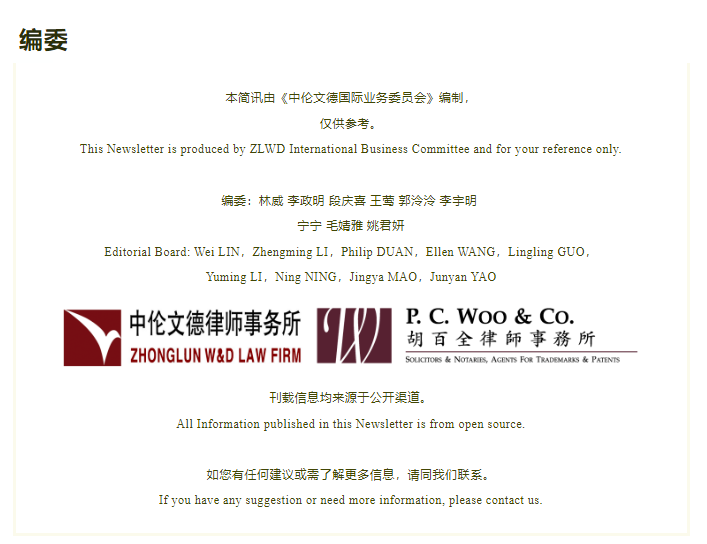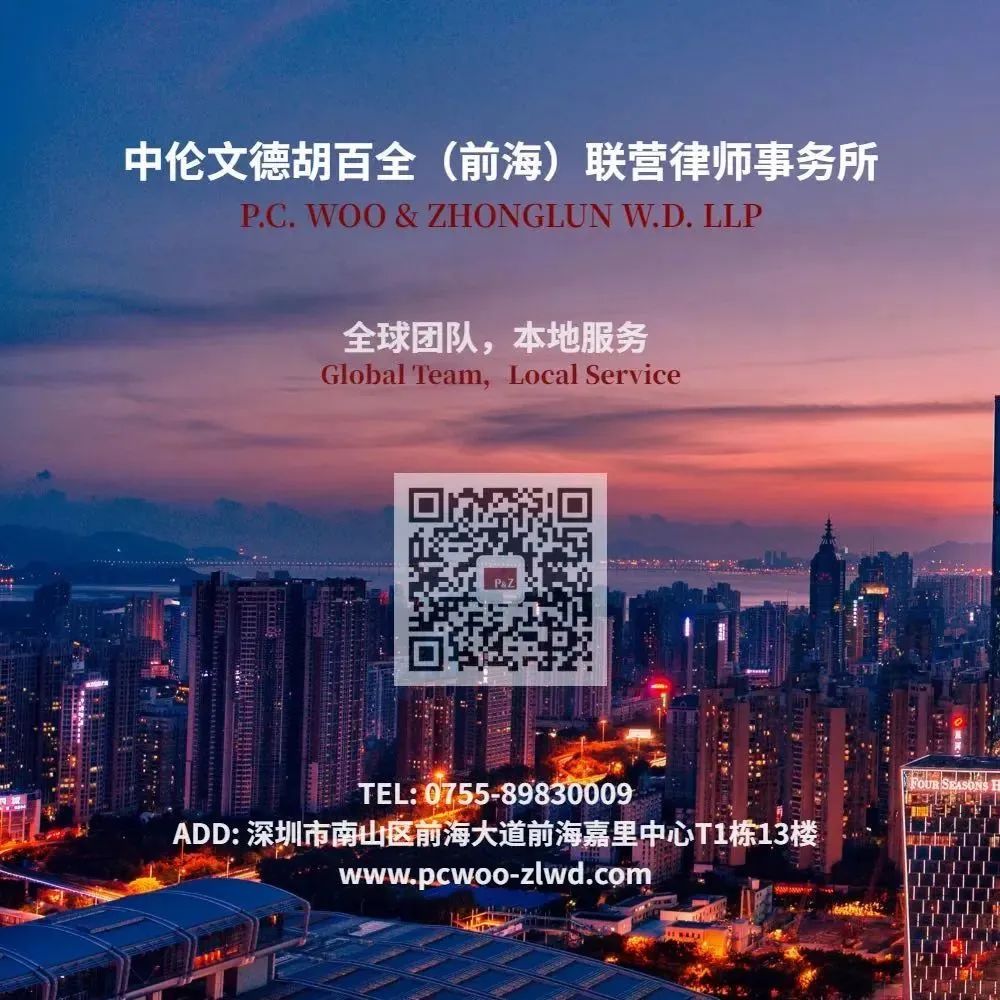
新闻活动

新闻活动

Provisions on the Development of International Commercial Arbitration in Hainan Free Trade Port to Take Effect on July 1
The "Provisions on the Development of International Commercial Arbitration in Hainan Free Trade Port" (hereinafter referred to as the "Provisions") were passed by the Eleventh Session of the Standing Committee of the Seventh People's Congress of Hainan Province and were announced on June 5. They will come into effect on July 1.
The introduction of the "Provisions" aims to promote the development of international commercial arbitration in Hainan Free Trade Port, enhance the credibility of arbitration, innovate diversified commercial dispute resolution mechanisms, and advance the construction of an international commercial arbitration center serving the Hainan Free Trade Port, and oriented towards the Pacific and Indian Oceans. The "Provisions" adopt a "small incision" legislative approach, without dividing chapters, consisting of twenty-seven articles. On the premise of adhering to the basic system of arbitration, they utilize the legislative power of Hainan Free Trade Port, integrate with the actual situation of Hainan, actively align with international arbitration practices, promote the opening up of arbitration, optimize the development environment of arbitration, and focus on enhancing the credibility, influence, and international competitiveness of arbitration in Hainan Free Trade Port. The key points highlight the following six aspects:
1. Clarifying measures to support the development of international commercial arbitration.
2. Enhancing the level of openness and internationalization of arbitration.
3. Conducting temporary arbitration activities.
4. Allowing parties to select arbitrators from outside the roster of arbitrators.
5. Fully leveraging the self-discipline role of the arbitration association.
Strengthening judicial supervision and protection.
World Arbitration Update 2024 Successfully Held at the Beijing Arbitration Commission
From May 15 to 16, 2024, the World Arbitration Update 2024 (WAU 2024), co-hosted by the Beijing Arbitration Commission/Beijing International Arbitration Center (hereinafter referred to as "BAC") and World Arbitration Update LLC, was successfully held at the BAC and broadcast globally online.
The conference featured eight topics designed to address various aspects of international arbitration, including the adaptation and improvement of the international arbitration legal framework, the roles and challenges of various entities in arbitration, the application scenarios of arbitration in different fields, and arbitration costs and efficiency. The topics were:
1. New Developments in Chinese Arbitration
2. China's Reservations to the New York Convention and Considerations of Public Policy Exceptions in the Recognition and Enforcement of International Commercial Arbitration
3. The Status and Prospects of the Belt and Road Initiative in International Arbitration
4. Efficiency Management and Latest Practices of Arbitration Institutions
5. State-Owned Enterprises as Investors and Claimants in Investment Arbitration
6. Development of Renewable Energy Projects in the Asia-Pacific Region and Arbitration as a Means of Resolving Related Commercial Disputes
7. China's Participation in the Investor-State Dispute Settlement (ISDS) Mechanism
8. The Development of Third-Party Funding in Chinese Litigation and Arbitration
CACIA Conducts First Trial in Xiamen Free Trade Zone
On May 30, 2024, the Central Asian International Arbitration Court (CACIA) held its first foreign-related arbitration case trial at the Maritime Silk Road International Law and Business Integration Service Base in the Xiamen Free Trade Zone. The trial was conducted at the shared arbitration courtroom in the Xiamen Free Trade Zone using a hybrid "online + offline" model via an online trial system. This allowed for seamless connection between the international arbitration demonstration court in the Xiamen Free Trade Zone and the arbitration court at the CACIA headquarters in Bishkek, Kyrgyzstan.
The successful completion of this trial not only provided practical experience for foreign arbitration institutions choosing the Xiamen Free Trade Zone as a trial destination but also marked the official connection of the "China-Central Asia" preferred location for international commercial disputes, meticulously crafted by the Maritime Silk Road Central Legal District. This is expected to significantly promote foreign-related arbitration cooperation between the Xiamen Free Trade Zone and Central Asia, as well as boost economic and trade exchanges between the Xiamen Free Trade Zone and the Central Asian region.
Jiaxing Intermediate People's Court:
Repeated Arbitration Falls Within Court's Scope of Review, Court Dismisses Applicant's Request to Annul Arbitration Award
Legal Basis:
"The Arbitration Law of the People's Republic of China"
Article 58
Where the parties concerned can provide evidence disproving the arbitration award in any of the following circumstances, they may request a cancellation of the arbitration award by an intermediate People's Court at the place where the arbitration commission is located:
(1) there was no arbitration agreement;
(2) items for arbitration were not within the scope of the arbitration agreement or were those upon which the arbitration commission had no right to arbitrate;
(3) the establishment of the arbitration tribunal or arbitration procedures are in contravention of legal proceedings;
(4) the evidence upon which the arbitration award is made was counterfeit;
(5) the other party has concealed evidence to the degree that fairness has been affected;
(6) arbitrators have accepted bribes, resorted to deception for personal gain or perverted the course of justice by the award.
Where the People's Court has formed a collegiate bench and has examined and verified that the award was made under one of the aforesaid situations, it shall order the cancellation of the award.
Where the People's Court decides that it should make a ruling to the effect that there has been a violation of the public interest, it shall order the cancellation of the award.
"Interpretation of the Supreme People's Court on the Application of the Civil Procedure Law of the People's Republic of China"
Article 247
Where a party files a lawsuit again concerning a matter under a filed lawsuit in the process of the lawsuit or after a judgment takes effect, and the following conditions are met, such lawsuit shall constitute a repeated lawsuit:
1. the parties to the latter lawsuit and those to the former lawsuit are the same;
2. the subject matter of the latter lawsuit and that of the former lawsuit is the same; and
3. claims of the latter lawsuit and those of the former lawsuit are the same or claims of the latter lawsuit essentially deny the judgment results of the former lawsuit.
Where a party files a lawsuit repeatedly, the people's court shall not accept the lawsuit; where the people's court has accepted the lawsuit, it shall rule to dismiss the lawsuit, unless otherwise stipulated by laws and judicial interpretations.
Case Description:
Company A and Company B had a dispute over a construction contract. On October 27, 2020, Company A filed an arbitration application with the Jiaxing Arbitration Commission (hereinafter referred to as the "Arbitration Commission"), based on the construction contract signed by both parties, requesting Company B to pay the overdue construction fee of 29.48 million yuan and a late payment penalty of 3.919327 million yuan. The Arbitration Commission accepted the case on November 12, 2020, and on March 8, 2022, issued the (2020) Jia Arbitration No. 805 award (hereinafter referred to as the "805 Award"), declaring the contract between both parties invalid, confirming the 57 million yuan paid voluntarily by Company B as the actual settlement amount, and rejecting Company A's arbitration request.
In February 2023, Company B filed another arbitration application with the Arbitration Commission, requesting Company A to return the excess payment of construction fees and interest losses totaling more than 11 million yuan, as well as the reimbursement of advanced expenses and a penalty totaling more than 4.8 million yuan. On March 15, 2024, the Jiaxing Arbitration Commission issued the (2023) Jia Arbitration No. 18 award (hereinafter referred to as the "18 Award"), partially supporting Company B's request.
On February 8, 2023, Company A filed a lawsuit with the Jiaxing Intermediate People's Court (hereinafter referred to as the "Court"), arguing that the arbitration tribunal accepted the case and overturned the 805 Award without new evidence or supplementary facts, violating the relevant provisions of the "Arbitration Law of the People's Republic of China" and the "Jiaxing Arbitration Commission Arbitration Rules." Company A claimed that this case constituted repeated arbitration, severely infringing on its legitimate rights, and requested the annulment of the 18 Award. Company B argued that the two cases did not pertain to the same dispute, that the 805 Award did not substantively determine the settlement of the construction fees, and that the 18 Award dealt with the legal consequences after the contract was declared invalid, requesting the court to dismiss Company A's application.
Court's View:
According to Article 58 of the "Arbitration Law of the People's Republic of China," Company A claimed that the dispute between the parties had already been resolved by the (2020) Jia Arbitration No. 805 award, and Company B's subsequent arbitration application and the resulting award constituted repeated arbitration, violating the provisions of the Arbitration Law.
The court held that repeated arbitration should fall within the scope of the court's review of cases requesting the annulment of arbitration awards. Referring to Article 247 of the "Interpretation of the Supreme People's Court on the Application of the Civil Procedure Law of the People's Republic of China," repeated litigation requires that the parties of the subsequent lawsuit are the same as those of the prior lawsuit, the subject matter of the lawsuit is the same, the litigation requests are the same, or the litigation requests of the subsequent lawsuit essentially negate the judgment of the prior lawsuit.
In this case, although the parties in the previous 805 arbitration case and the subsequent 18 arbitration case were the same, the subject matter and arbitration requests were not the same, and the arbitration requests of the subsequent case did not negate the judgment of the previous case. In the 805 arbitration case, Company A's claim for construction fees was based on the effective construction contract between the parties, while in the 18 arbitration case, Company B's claim for the return of overpaid construction fees was based on the invalidity of the construction contract. The basis for the claims in the two cases was different. The 805 arbitration case declared the contract invalid but did not substantively review whether Company A completed all the construction work and whether Company B overpaid the construction fees. The 18 arbitration case, based on the basic facts of overpayment, ruled for the return of the overpaid construction fees. Therefore, the Jiaxing Arbitration Commission's acceptance and ruling of Company B's case did not violate the principle of "one final arbitration" and did not constitute repeated arbitration, nor did it violate the provisions of the Arbitration Law and the Arbitration Rules. Therefore, Company A's application to annul the arbitration award on this basis is not accepted by the court.
In conclusion, the Jiaxing Intermediate People's Court found that Company A's reasons for requesting the annulment of the arbitration award were unfounded. In accordance with Article 60 of the "Arbitration Law of the People's Republic of China," the court ruled to dismiss Company A's application.
South African High Court: CIETAC Arbitration Award Does Not Violate Public Policy, Should Be Recognized and Enforced
Case Description:
The applicant, Momoco, is a company registered and established under the laws of England and Wales. The respondent, GFE, is a South African company registered and established under the laws of the Republic of South Africa. Between 2011 and 2014, the parties entered into multiple sales contracts, under which the applicant supplied wire rods to the respondent. However, the respondent failed to pay the agreed purchase price.
According to the dispute resolution clause in the sales contracts, after unsuccessful attempts at amicable negotiations, the applicant submitted the dispute to the China International Economic and Trade Arbitration Commission (CIETAC) for arbitration on November 10, 2017. On May 15, 2018, CIETAC served the arbitration notice and related documents to both parties. The arbitration tribunal held a hearing on January 15, 2019, and issued an arbitration award on June 12, 2020, requiring the respondent to pay the outstanding amount and related costs, and to bear the arbitration fees.
The respondent refused to comply with the arbitration award, leading the applicant to apply to the South African High Court (hereinafter referred to as the "Court") for recognition and enforcement of the CIETAC award. The respondent argued against this, citing public policy, claiming that the applicant was involved in tax evasion and that payment would violate the UK's Criminal Finances Act 2017 and the Proceeds of Crime Act (POCA). The respondent demanded that the applicant prove the absence of tax evasion and ensure that the payment would not lead to legal action for conspiracy to evade taxes.
Court's View:
The Court noted that the arbitration in question was international, given that the parties were based in different countries and the award was made in the People's Republic of China. Therefore, the award should be reviewed under the New York Convention. The respondent's main defense was that recognizing or enforcing the CIETAC award would violate public policy, arguing that compliance would contravene anti-tax evasion laws, as public policy requires companies to fully disclose their transactions to tax authorities.
According to the accountant's report provided by the respondent, there was no evidence of tax evasion by the applicant. The arbitration tribunal had also reviewed and dismissed the tax evasion defense, finding it irrelevant to the dispute. The Court explained that the purpose of POCA is to combat organized crime, money laundering, and criminal gang activities, which should not apply to this case. Furthermore, no one had proven that the primary transaction agreement was made to commit illegal acts.
The Court determined that there was no evidence of illegal activity or public policy issues in the arbitration award. Enforcing the arbitration award did not constitute illegal activity as defined by POCA. The arbitrators' authority stemmed from the arbitration agreement between the parties, and tax issues were unrelated to the legality of the agreement and the award itself. Tax matters in the UK were to be handled by UK authorities, and the Court had no jurisdiction over them.
The Court emphasized that recognizing arbitration awards must adhere to the principle of party autonomy and respect arbitration decisions, aligning with global traditions. The respondent's defense was seen as an attempt to delay enforcement, and refusal to pay for the purchased goods violated public policy.
In conclusion, the South African High Court dismissed the respondent's defense, granted the applicant's request, and ruled to recognize and enforce the arbitration award issued by the China International Economic and Trade Arbitration Commission.


